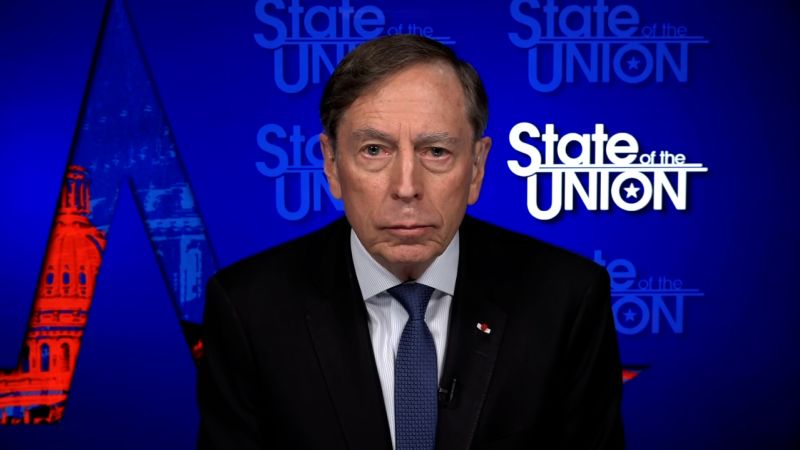Former Director of the Central Intelligence Agency, David Petraeus, recently appeared on CNN’s State of the Union to discuss the significance of Iran’s attack on Israel. Petraeus commented that the attack was a “very big deal” and would have far-reaching implications for the region. He highlighted the escalating tensions between Iran and Israel, noting that the attack was part of a broader conflict between the two countries. Petraeus emphasized the need for de-escalation and diplomatic solutions to prevent further violence in the region.
Petraeus pointed out that Iran’s attack on Israel was a deliberate and calculated move aimed at sending a message to both Israel and the United States. He noted that Iran was trying to demonstrate its military capabilities and willingness to use force against its adversaries. Petraeus highlighted the risk of escalation in the conflict between Iran and Israel, stressing the importance of de-escalation efforts to prevent a full-scale war. He called for diplomatic engagement and negotiations to resolve the underlying issues fueling the conflict.
During the interview, Petraeus also discussed the broader geopolitical implications of Iran’s attack on Israel. He noted that the conflict was part of a larger power struggle in the region, involving multiple players with competing interests. Petraeus highlighted the complex alliances and rivalries in the Middle East, pointing to the involvement of countries such as Saudi Arabia, Syria, and Russia in the region’s conflicts. He emphasized the need for a coordinated and strategic approach to managing the various conflicts and tensions in the region.
In the context of Iran’s attack on Israel, Petraeus emphasized the importance of understanding the underlying motivations and goals of each party involved in the conflict. He noted that Iran’s actions were driven by its desire to assert its influence and challenge its adversaries in the region. Petraeus highlighted the need for a clear understanding of Iran’s strategic objectives and capabilities in order to develop effective responses and strategies to address the conflict. He called for a comprehensive approach that takes into account the complex dynamics and interests at play in the region.
Petraeus also stressed the need for international engagement and cooperation to address the conflict between Iran and Israel. He noted that the conflict had the potential to escalate into a wider regional conflict involving multiple actors and interests. Petraeus called for diplomatic efforts to de-escalate tensions and prevent further violence in the region. He highlighted the role of international organizations and allies in mediating the conflict and facilitating dialogue between the parties involved. Petraeus underscored the importance of a united and coordinated approach to managing the complex geopolitical challenges in the Middle East.
In conclusion, Petraeus highlighted the gravity of Iran’s attack on Israel and the significant implications it would have for the region. He emphasized the need for de-escalation, diplomatic engagement, and strategic planning to address the conflict and prevent further violence. Petraeus called for a comprehensive and coordinated approach that takes into account the complex dynamics and interests at play in the Middle East. He stressed the importance of understanding the motivations and goals of each party involved in the conflict and the need for international cooperation to manage the escalating tensions in the region.













